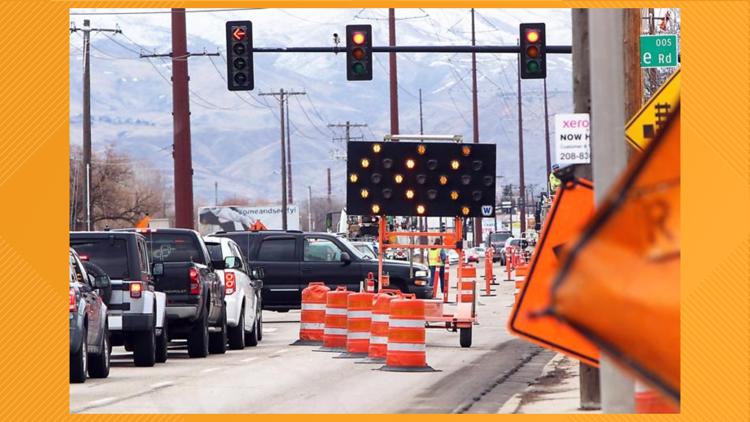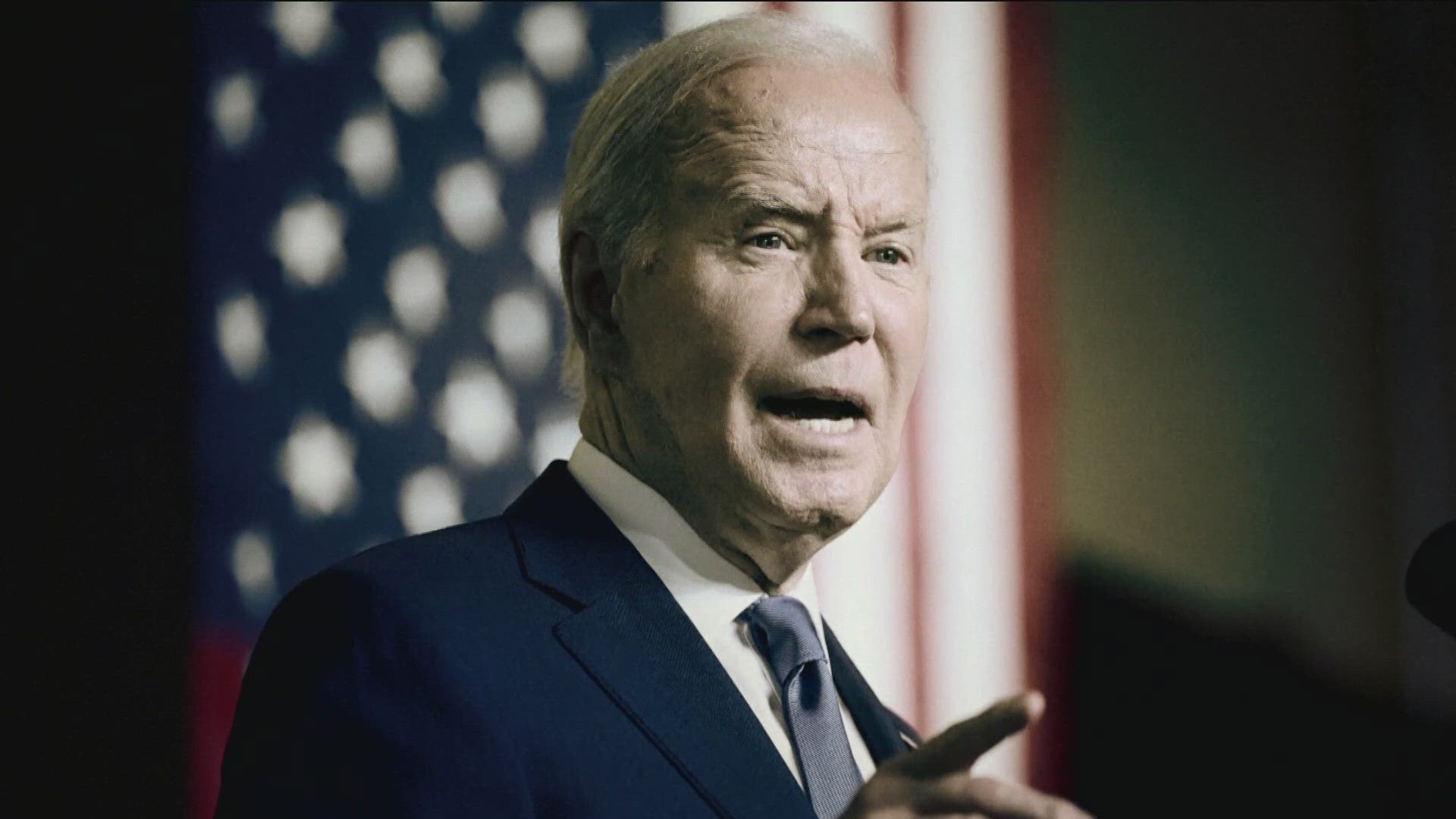WASHINGTON —
Editor's Note: The article appeared on our partner's website the Idaho Press. It was originally published by Idaho Falls Post Register.
Billions of dollars to address daily essential services including roads, water and broadband are headed to Idaho as President Joe Biden prepares to sign the $1.2 trillion bipartisan infrastructure deal after a majority in the U.S. House of Representatives passed the bill Friday.
The White House held a Tuesday press briefing to discuss some of the details of how the bill addresses clean energy production. Department of Energy Secretary Jennifer Granholm highlighted key aspects of the bill including investments into clean energy and affordable power, creating more jobs for Americans, and providing funding for new technologies that demonstrate clean energy production. She said it was fitting that the bill has been called “unprecedented and transformative.”
“It’s not just because of the top line number but because of the sheer number of problems it solves for the American people and the great benefits that people will draw from it,” Granholm said. “The investments that we will make will improve the lives of every single person in this country.”
According to a Department of Energy fact sheet released to reporters in attendance, the bill will allocate more than $7 billion in the supply chain for batteries to support clean and affordable transportation options. One such example of this is to replace diesel school buses in the country with electric buses.
An additional $1.5 billion will be provided for clean hydrogen manufacturing and advancing recycling research, design and development along with the creation of a $750 million grant program to support advanced energy technology manufacturing projects in coal communities.
The deal will add an average of 1.5 million jobs per year over the next decade when combined with the Build Back Better Act, according to the fact sheet. The majority of those jobs won’t require a college degree.
“When you put all this together, it is a package of investments that will drive the economy forward, lower prices for Americans looking ahead and raise their incomes,” said David Kamin, White House deputy director of the National Economic Council.
Another $21.5 billion in funding will be distributed to produce new technologies that demonstrate clean energy production. This will help support the energy department’s goal to achieve a carbon net-zero energy production goal by 2050.
Idaho is one of the leading states in in-state utility electricity coming from renewable energy sources, according to a 2019 report from the U.S. Energy Information Administration. The state is just behind Vermont and Maine and generated 76% of its in-state electricity from renewable energy in 2019. Most of Idaho’s renewable electricity comes from hydropower.
Other funding details are included in the energy department’s fact sheet.
Many of the deal’s funds will be sent to states based on existing programs and funding sources, Granholm said. States will also have the opportunity to compete for new grants. Granholm called these short-term and long-term strategies of addressing 21st century issues as the energy department seeks to fund new technologies.
Here’s what Idaho can expect from the over $3 billion it will receive from the deal, according to the White House:
- • Two billion dollars for federal-aid highway apportioned programs and $225 million for bridge replacement and repairs under the Infrastructure Investment and Jobs Act over five years. Idaho can also compete for the $12.5 billion Bridge Investment Program for economically significant bridges and nearly $16 billion of national funding in the bill dedicated for major projects that will deliver substantial economic benefits to communities.
- • Another $192 million over five years to improve public transit across the state.
- • To support the expansion of an electric vehicle charging network in the state, $30 million over five years. Idaho will also have the opportunity to apply for the $2.5 billion in grant funding dedicated to electric vehicle charging.
- A minimum allocation of $100 million to help provide broadband coverage across the state.
- Protection against wildfires with $24 million over five years; and $13 million to protect against cyberattacks.
- Improvements in water infrastructure with $355 million allocated to Idaho to provide clean drinking water in the state’s communities.
- Approximately $86 million for airport developments over five years.
Both of Idaho’s senators, Sen. James Risch and Sen. Mike Crapo, were among the 19 Republicans in the Senate who voted to pass the deal.
After voting to pass the deal in August, Risch said in a statement the infrastructure bill was the better choice out of another $2.5 trillion Biden proposal.
“Today, the Senate passed the infrastructure bill for America’s roads and bridges. Senators had two choices: this $550 billion package with no tax increases, or allow Democrats to pass the Biden proposal of $2.5 trillion, raise taxes, and pile it on top of their impending $3.5 trillion social spending spree. On behalf of Idaho, I chose to support the lower $550 billion investment in hard infrastructure like roads, bridges, and broadband. I believe it to be the substantially more reasonable and conservative solution to the necessary infrastructure spending. I intend to vigorously oppose Democrats’ reckless $3.5 trillion social spending bill, which is coming next,” Risch said in the statement.
Crapo also released a statement and noted the deal would provide billions of dollars for essential infrastructure projects in Idaho without raising taxes.
“The bipartisan legislation we passed today makes investments in traditional, hard infrastructure projects to help keep pace with Idaho’s rapid growth. It includes billions of dollars for Idaho’s roads, highways and bridges; funding for high-speed internet and broadband infrastructure deployment; millions in water infrastructure, including for groundwater storage and conveyance; funding for resiliency against natural disasters like wildfires and droughts; a reauthorization of the Secure Rural Schools program; and more.”
“It does not raise taxes. It reprioritizes the use of certain unused COVID-relief funds away from bailouts and idle funds, shifting them toward supply-side investments that will provide benefits to Idahoans for many years. It contains counter-inflationary measures focused primarily on long-term productivity rather than near-term demand. This is especially critical right now, as rising prices impact families and small businesses across America. Republicans were successful in keeping out of this bill changes to states’ Right-to-Work status and increased funding for the Internal Revenue Service,” Crapo said in the statement.
Rep. Mike Simpson and Rep. Russ Fulcher were among an overwhelming majority of their Republican colleagues who voted against the bill in the House of Representatives. The bill passed 228 to 206 in the House.
The article appeared on the website for our partner The Idaho Press.
Watch more Local News:
See the latest news from around the Treasure Valley and the Gem State in our YouTube playlist:



